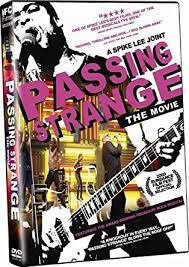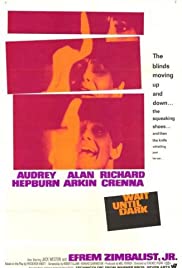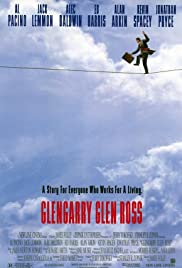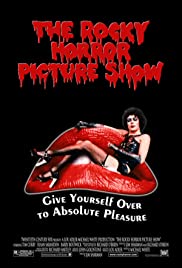
Growing up on Long Island, Manhattan and its legendary theatres would call
out to me in my sleepy town of Massapequa. Don’t get me wrong, there was
plenty of local culture: Billy Joel, Steve Guttenberg, the Mets. These are our
local heroes and pop culture touchstones. But just an hour ride westbound on
the Long Island Rail Road there exists another kind of show. Once a month
on Wednesdays, my mother and I would get into the city in time to get to the
TKTS booth and see a Broadway matinee. We bonded over some great shows
and some not-so-great ones.
We’d take turns each week picking which play we’d see, from the tortured ninety minutes of a tight drama, to the spectacle featuring three-hours of show tunes. There was always magic in those afternoons. The trick to pulling off a memorable film adaptation from a piece written for the stage is adding just the right amount of technical artistry.
Cinematography, editing, and scoring can achieve so much, but not losing the
immediacy of a story going down in the room you’re sitting in is what makes it
work. The balance has to be just right. And when that happens, it can blow your
New York State of Mind. To me, these are the movies that have made the most
out of their transformations from stage to screen:
#1 Passing Strange

Critic Consensus: Spike Lee’s document of the Tony Award-winning musical Passing Strange is every bit as compelling onscreen as it was on stage.
Of course, there has to be at least one musical represented here, and this is a killer. Shot during the last performance of its 2008 Broadway run, Passing Strange is a
personal story that ends up in the telling to be undeniably universal. Although live theatre shot directly for film is becoming more popular, this is included here
because it makes you feel like you’re practically on stage. The man of the hour is Stew, a singer-songwriter and first-time playwright, who strikes a joyous tone with this coming-of-middle-age saga.
Blessed with an outsized stage presence and material to match (the play won the Tony Award for Best Book), Stew narrates his time growing up in Los Angeles, moving to Amsterdam, and finding his own truth. The actors and band members are having a blast from the opening moments to the roof-raising encore. Spike Lee directs with just the right touch, capturing the show’s particularly fluid sense of time and place. He turns what
could have been a simple presentation into a rollicking testament, by deftly
establishing a feel for the good vibes rippling through the very live audience that
night.
#2 Who’s Afraid of Virginia Wolf

Critic Consensus: Led by a volcanic performance from Elizabeth Taylor, Who’s Afraid of Virginia Woolf? is a scathing adaptation of the Edward Albee play that serves as a brilliant calling card for debuting director Mike Nichols.
This may be the best, most ferocious example of how galvanizing a play
turned into a film can be. Edward Albee’s scorching high drama follows the
interactions between two couples over a single evening. George and Martha,
who lay out emotional and mental minefields for each other (and their
unsuspecting guests), have been satirized and parodied for over half a century.
There’s not a barb or insult lost when the psychic warfare is captured for the
screen. Ernest Lehman wrote the screenplay, and he stays true to the ferocity
of Albee’s language. Mike Nichols, using his experience from years of creating
great theatre, makes a powerful directorial debut. The movie has the feel of a
boxing match thanks to the stunning craft of cinematographer Haskell Wexler.
The main attraction is the dazzling depictions of George and Martha from real-life married couple Richard Burton and Elizabeth Taylor. This movie does what
seems impossible, taking the most intimate of dramas and committing it to film
without allowing any of the dread to escape. Taylor gained about twenty-five
pounds for the role, and went on to win the Academy Award for best actress,
one of thirteen Oscars for which the film was nominated. The least we can do is
watch her devour this material in a career-defining portrayal. This is a towering
achievement and a must-see.
#3 Wait Until Dark

Critic Consensus: Nail-bitingly tense and brilliantly acted, Wait Until Dark is a compact thriller that makes the most of its fiendishly clever premise.
In Frederick Knott’s play, a game of cat and mouse works the audience’s nerves
right up until the shriek-inducing climax. In the 1967 film, Audrey Hepburn plays
Susy, a blind woman who is slowly terrorized in her New York apartment.
Terence Young, who directed three of the first four James Bond films, summons
all his movie-making magic towards teasing out every ounce of suspense. The
screenplay, by Robert and Jane-Howard Carrington, keeps every scene as tight
as a rush-hour subway car. Academy Award winners are all over this movie, with
cinematography by Charles Lang, and music by Henry Mancini. The McGuffin, a
simple child’s doll that happens to be stuffed with heroin, has multiple bad guys
trying to get over on Susy. Alan Arkin portrays the main menace so well; you
appreciate the wide range of characters he’s played over the years. Hepburn is
also in a role like few she’s played before and was nominated for her fifth Oscar
for her performance. Before jump scares were all the rage, Wait Until Dark
pulled off one for the ages. This is a true thriller that delivers when you need it
the most but expects it the least.
#4 Glengarry Glen Ross

Critic Consensus: This adaptation of David Mamet’s play is every bit as compelling and witty as its source material, thanks in large part to a clever script and a bevy of powerhouse actors.
I’ve been inside a few real estate offices, but none of them have been as full
of swinging d***ks as the setting for Glengarry Glenn Ross. It’s not the most
obvious backdrop for a drama, but that’s part of GGR’s sly genius. David Mamet
adapts his Pulitzer Prize-winning play into this classic that bristles with his
infamous guy-alogue. The screenplay gives the characters just enough room
while still making them scratch and claw within the confines of the plot. Director
James Foley works the magnificent cast into a tight ensemble that brings out all
the desperation and double-dealing in the script. Al Pacino, Ed Harris, and Alan
Arkin are all here, and are as great as they’ve ever been. Jack Lemmon’s
portrayal of Shelly “The Machine” Levene is so fantastic, it became the
inspiration for the beleaguered salesman Gil Gunderon on The Simpsons.
However, it is the seven minutes and thirteen seconds of screen time that Alec
Baldwin commands that make for the film’s most memorable moments. “Coffee’s
for closers…” Indeed.
#5 The Rocky Horror Picture Show

Critic Consensus: Rocky Horror Picture Show brings its quirky characters in tight, but it’s the narrative thrust that really drives audiences insane and keeps ’em doing the time warp again.
Okay, one more musical, but this film is an undeniable cult classic. It takes a
stage show and explores its possibilities in a campy, sexy, B movie fantasy.
Richard O’Brien wrote The Rocky Horror Show, which amped up British
audiences for seven years before moving to Broadway. In 1975, he and the
play’s director Jim Sharman adapted the script for a film. On a dark and stormy
night, newly engaged couple Brad and Janet show up at the castle of Doctor
Frank-N-Furter, and are changed forever during a wild night of sex and science
fiction. In a cast of outrageously colorful characters, O’Brien plays handyman Riff
Raff, and Tim Curry reprises the role of the good Doctor, which he originated in
London. The film became a staple at midnight showings around the U.S., as
audiences dressed up as the characters, shouted their own lines back at the
screen, and sang along with the film’s outstanding songs. Here’s to generating a spirit of collective fun that’s lasted forty-five years, and makes people get psyched, get out, and get to the movies before the clock strikes twelve
Visit our Screenplays page to download even more scripts for free
BECOME A MEMBER & GET ACCESS TO:
- Screenwriting Courses
- Free Hollywood Screenplays to download
- Free Instructional Videos
- Uncut interviews with Industry Screenwriters
Sponsors
- The Guide For Ever Screenwriter – (Paperback) (Free Ebook)
- We Fix Your Script – (Free Consultation)
- Script Summit Screenplay Contest – (Early Bird Submission)
Keep in touch with The Successful Screenwriter
Facebook – The Successful Screenwriter
Twitter – @screenwriterpod
Instagram – @thesuccessfulscreenwriter
Youtube – The Successful Screenwriter
CHECK OUT OUR COMFY SWAG

#screenwriting, #screenplay, stageplay, #actorplay, #film, #writingcommunity
